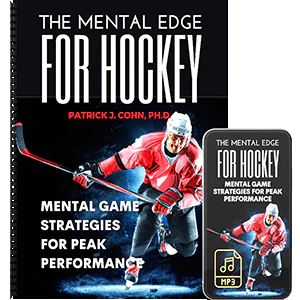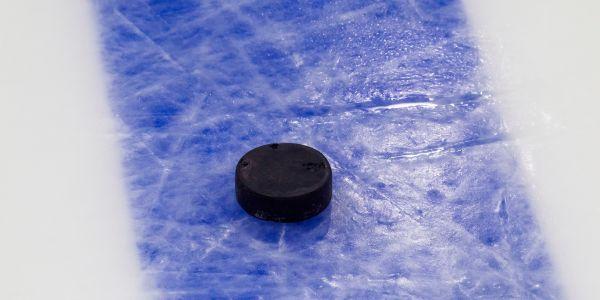Recovering After a Bad Hockey Game
There is one thing to be unhappy after a bad game, but elite hockey players take it a step further and do something about it. All hockey players are disappointed after a string of bad games.
However, some players get trapped in their emotions. These players question their abilities, negatively judge themselves, or get down on themselves.
Imagine being a goaltender who has given up several uncharacteristic goals over the course of three games. You allowed more goals than your goals-against average and were pulled from your last game in the third period.
You felt angry, frustrated, and embarrassed. You incessantly lamented giving up those easy goals, which affected your confidence and motivation.
Instead of working to fix your mistakes, you moped around in the locker room and on the ice. Elite players, on the other hand, look for ways to move forward.
For example, elite goaltenders review their negative performances. They analyze what went wrong, “Did I misplay angles? Was I slow to react to shots? Did I expose my tendencies in goal?”
After identifying their errors, elite players seek feedback from their coaches, work to rectify those issues during practice, and may even spend extra time sharpening their skills after practice.
Taking action is the reason elite hockey players become elite. The key is to move past frustration and not allow negative emotions to prevent you from taking the next step towards your potential.
Emotions can be a valuable resource if you channel them into actionable steps to improve. The Chicago Blackhawks started their 2024-25 NHL season with an 8-17-2 record and have the worst record in the league.
Not only did Chicago start the season slowly, but so has 2023 No. 1 overall draftee Connor Bedard. Bedard, who won the Calder Trophy for Rookie of the Year, has struggled through his sophomore season, scoring only five goals in 27 games.
Instead of accepting his sophomore slump, Bedard is using the first half of the season to fuel his efforts to raise his game to the next level.
BEDARD: “You kind of sleep in the bed you make. I haven’t been too happy with the start of the year. You can try to use something like that for a little motivation & that’s what I’m going to do.”
The first step to moving forward is to stop feeling sorry for yourself. Feeling sorry for yourself does nothing to improve your game. The next step is to take responsibility for your level of play. When you recognize that you control your attitude, effort, and performance, you open yourself up to finding ways to lift your game.
Lastly, you must take corrective action to fix mistakes, build your skills, and be solution-oriented. Taking a positive approach to bad games separates elite players from those who stay stuck in performance ruts.
Control Your Self-Talk – Avoid negative self-judgment after bad games. Instead of harshly criticizing yourself after a bad game, ask yourself, “What can I learn from this?” or “How can I perform better next time?”
A positive approach to bad games empowers you to find solutions rather than wallowing in self-pity.
Related Articles on Hockey Mental Game:
- Mental Keys to Recovery for Hockey Players
- How to Create a Winning Mindset for Hockey
- How Hockey Players Grow into Their Potential
*Subscribe to The Sports Psychology Podcast on iTunes
*Subscribe to The Sports Psychology Podcast on Spotify
The Mental Edge for Hockey

The Mental Edge for Hockey teaches you proven and simple mental game strategies so you can overcome fear of failure, lack of confidence, slumps or poor composure, take your practice game to competition, and boost your confidence in hockey. You learn simple, actionable mental game strategies to help you perform at your peak!
I’ve worked with athletes for 30 plus years – and know the top challenges that undermine performance when you perform in games. Now you can tap into my expertise and experience in coaching hockey players on the mental game.
In this program, you’ll learn the TOP 10 mental training lessons for hockey players – the same strategies I teach one-on-one athletes I coach on the mental game. My clients pay thousands of dollars for personal coaching, but now you can have the same strategies to improve your mental game – at a fraction of the price.

Leave a Reply